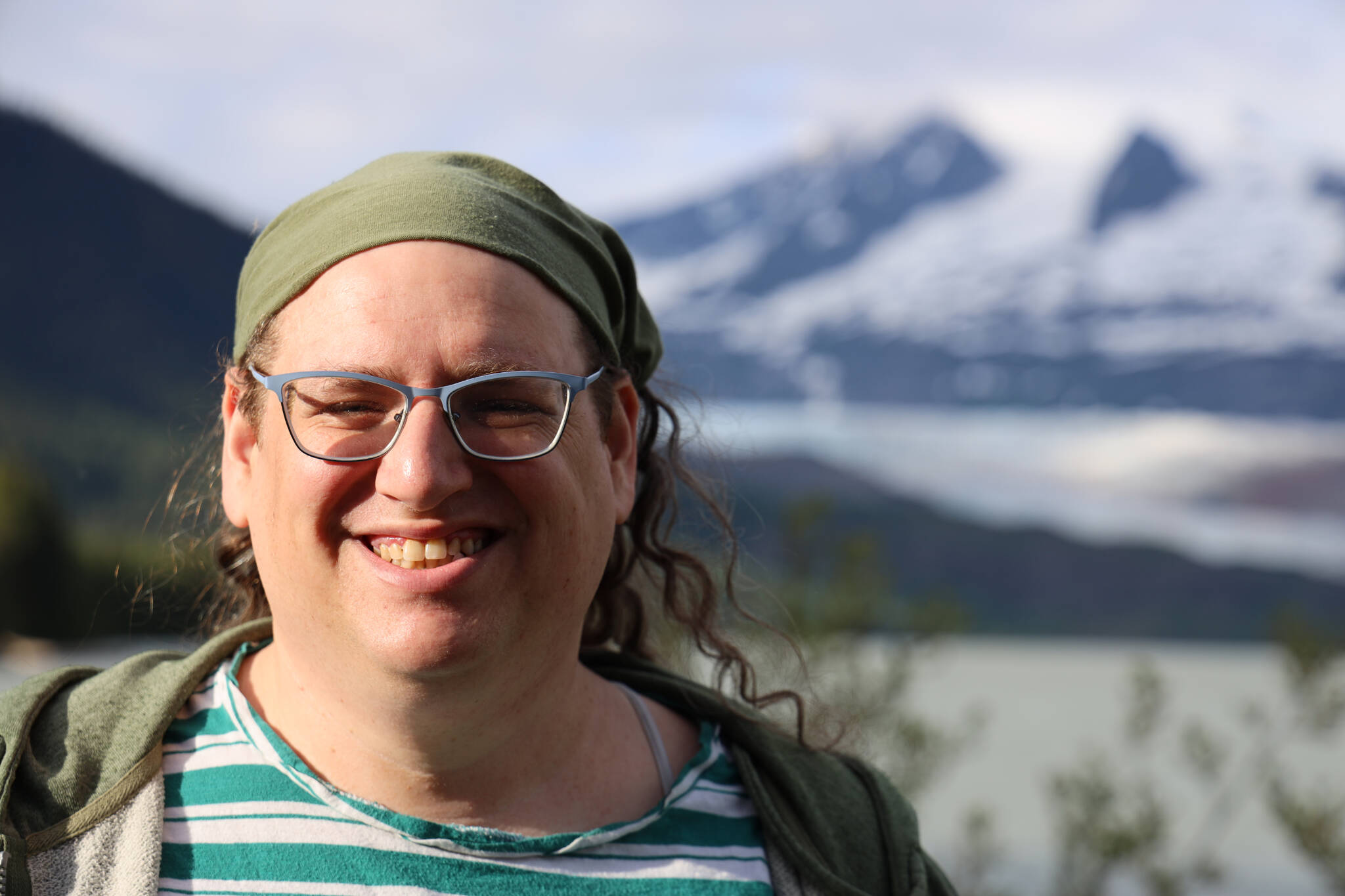Editor’s note: This is the final story in a four-part series during each week of June for Pride Month that features prominent LGBTQ+ residents in Juneau that have made a positive impact on the capital city.
When Emily Mesch moved to Juneau in 2019, she knew she had to get involved and find like-minded people in the LGBTQ+ community able to support her — because for many years that wasn’t the case.
“I’m a transwoman and on the ace spectrum, and I figured this out in 2015 and at the time I was living overseas in Israel,” she said, noting it was difficult to connect to the LGBTQ+ community because of the language barrier. She said the trend of struggling to connect continued as she bounced from place to place following her move back from Israel.
“So when I moved to Juneau I wanted to make a difference — I wanted to be involved in the community and I actually joined the board of SEAGLA within like six months of moving,” she said, laughing.
Now Mesch is the president of Southeast Alaska LGBTQ+ Alliance, a Juneau-based nonprofit that works to “provide a supporting social network for gay, lesbian, bisexual, transgender, and queer people in Southeast Alaska.”
The group organizes the annual Pride events that scatter across Juneau throughout the month of June. Since the nonprofit’s establishment in 1986, all work has been entirely volunteer. Mesch said her hope for SEAGLA in the coming year is to hire its first paid employee.
“Our focus has been on building community and having community events,” Mesch said.
According to its website, when SEAGLA first started more than four decades ago it began with “like-minded friends (who) realized there was a need for a social opportunity for the Gay, Lesbian and Bi-sexual people of Juneau.”
The small group began hosting events for the community and throughout the years SEAGLA has continued to grow to reach a larger community. Now as a nonprofit with elected officers and bylaws it works “to promote open and social acceptance of Gay and Lesbian persons living in Southeast Alaska.”
Mesch said having someone hired as a paid employee will be a major step in aiding SEAGLA’s mission to have a stronger connection with other LGBTQ+ alliances and communities across Southeast Alaska.
“I think it’s important for the community to have an understanding that there are people out there and we want to help support them,” she said.
SEAGLA’s voice spans across Juneau and Southeast Alaska, sharing messages on topics that directly impact the LGBTQ community.
Recently, Mesch shared a statement of support for Juneau Trail and Road Runners’ announcement in mid-June declaring it “is catching up with running clubs across the country and athletics worldwide in recognizing nonbinary athletes” by including a nonbinary category in three events in 2022, including the annual Juneau Marathon and Half Marathon.
SEAGLA worked alongside JTRR to spread the word about the category change to local athletes.
“Everyone should be able to participate in sports, and it’s wonderful to see rules evolving to ensure that as many people as possible can be included,” Mesch said in a prepared statement included in the announcement.
Mesch said though SEAGLA can often provide a unified voice in Juneau for people in the LGBTQ+ community, she emphasized the core of the group mirrors the people who started the group in the first place and pushed back at the notion that SEAGLA is a political group.
“We just are people who have something in common — it’s in the same way as people who like archery will hang out and shoot targets, or people who like knitting will get together and do knitting circles — we just have this one thing in common,” she said. “We’re trying to find community and trying to live our lives as successfully as anybody else.”
• Contact reporter Clarise Larson at clarise.larson@juneauempire.com or (651)-528-1807.

